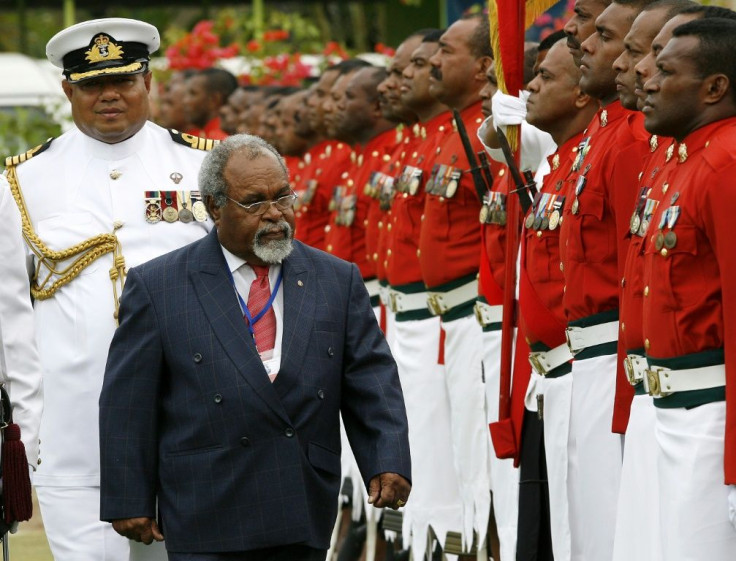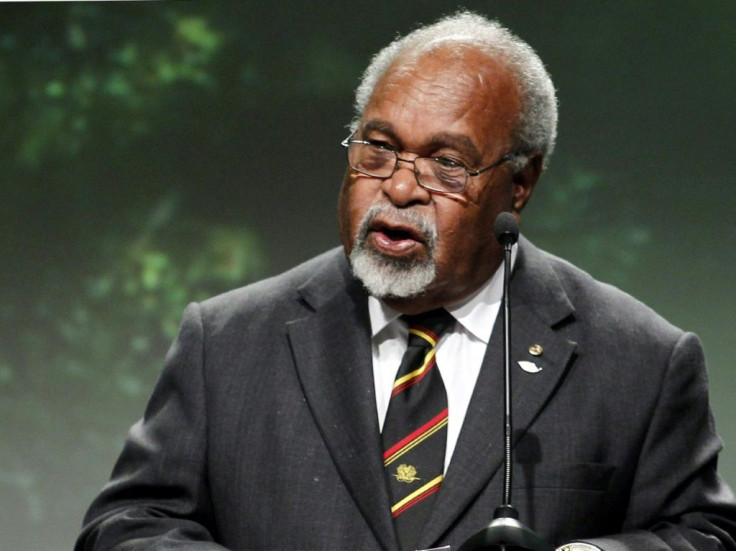Somare, PNG's 'Father Of The Nation', Dead At 84
Papua New Guinea's first prime minister and "father of the nation" Sir Michael Somare died on Friday after what his family described as a brief battle with cancer. He was 84.
Known across the country simply as "The Chief", Somare led Papua New Guinea at independence from Australia in 1975 and was prime minister for a total of 17 years, during three separate terms.
"Our nation honours this Great Leader," Prime Minister James Marape said in a statement, calling for "a week of silence, peace and calm" to pay respect to "this one person whom our country owes much".
"He is unmatched by anyone of us who comes after him."

Somare was only diagnosed with pancreatic cancer in early February and was admitted to hospital a week ago, his daughter Betha Somare said in a statement.
For decades, Somare was the dominant political figure in the mountainous island nation and his death is expected to unleash an emotional outpouring.
He only stepped back from politics in 2017, after 49 years as a member of parliament.
Prime Minister Scott Morrison of Australia, the former colonial power and PNG's biggest aid donor, lamented the loss of "a towering figure in the history of Papua New Guinea".
"He was a vital partner who staunchly defended Papua New Guinea's independence, but always appreciated Australia's unstinting commitment to his country," he said.

Somare's passing represents the end of an era for the staggeringly diverse nation, which has more than 800 languages and a myriad of tribal groups and struggles with some of the highest levels of poverty in the Asia-Pacific region.
"He's been a major figure, he's an iconic figure in Papua New Guinean politics," Sinclair Dinnen, a Pacific expert from the Australian National University in Canberra told AFP.
"He has a status that nobody else has. He is seen as the father of independence. Some would attribute his influence to having held this very difficult country together over the post-independence period."

Bright, educated and articulate, Somare was marked from the beginning of his political career as someone to watch, emerging as a leader of a new generation that would take power after the country won independence.
Born to a policeman and his wife in Rabaul on April 9, 1936, Somare grew up in a village in East Sepik, where he is expected to be laid to rest in the coming days.
A talented student, he became a school teacher and later a state radio broadcaster before moving into politics.
Mixing with like-minded activists in Port Moresby while studying at Administrative College, Somare helped found the nationalistic Papua New Guinea Union Party (PANGU) in 1967 before winning election to parliament in 1968.
After several years as opposition leader, he became chief minister in 1972 after forming a coalition government with Julius Chan, and later prime minister in 1975.
As governments came and went, Somare remained in parliament, using his charisma and skills to form alliances and secure power in a fractious political landscape.
Although he lost office in a vote of no confidence in 1980, he was re-elected and again served in the role from 1982 to 1985 and then from 2002 until 2011.
"I practise national unity and I am proud to be called the father of the nation," Somare said when he finally retired.
"To this generation of Papua New Guinea, I thank you all for your love and protection, I gave my best years to this country by serving as a politician, I hope each one of you will also contribute to our country."
Somare was not without controversy, earning neighbouring Australia's wrath in 2006 when he ignored an extradition request for then-Solomon Islands attorney general Julian Moti to face child sex charges.
He stepped aside in late 2010 so a leadership tribunal could hear allegations that he failed to lodge several annual financial statements in the 1990s.
He was ultimately suspended for two weeks after being found guilty of official misconduct.
He took extended leave in April the following year and underwent several heart operations in Singapore before he was controversially ousted when parliamentarians declared his seat vacant due to a prolonged absence from ill-health.
© Copyright AFP 2024. All rights reserved.




















